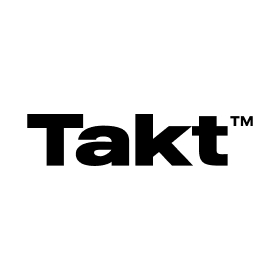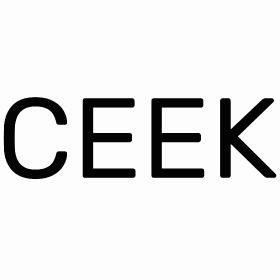
2024 CMO Insights: Top Investment Trends for Digital Marketing Agencies
The Dentsu team conducted research to find out where CMOs plan to invest to reach consumers in 2024. In this article we will share the results of the study. Spoiler: bloggers should work hard, but game creators can rest easy.
The Dentsu study included 600 CMOs from the United States and Canada.
We’ll tell you where marketing directors plan to invest in the coming year, as well as what difficulties they face.
Dentsu compared CMO plans with data collected over the previous 12 months prior to the survey. Below is a detailed schedule.
Social Commerce
S-commerce should not be confused with social media marketing. In the second case, we are talking about marketers using social networks to redirect traffic to a separate online store or to the company’s website.
But social commerce is a concept in which the platform functionality itself is used to sell goods or services. That is, getting to know the product, studying its properties, choosing and purchasing take place within the social network. This type of E-commerce is increasingly attracting specialists, as demonstrated by the Dentsu study. 35% of CMOs surveyed plan to spend money on it in the next 12 months. This is 5% more than in the previous period.
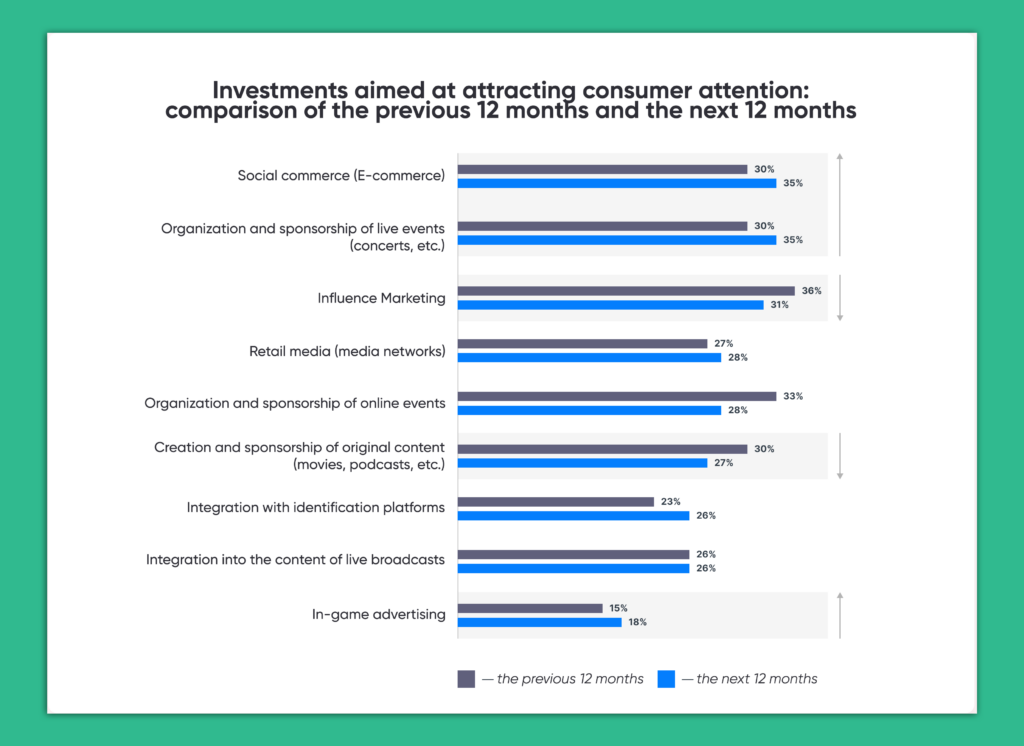
Live events vs online meetings
CMOs’ attention is gradually shifting to live events: conferences, sporting events, concerts. The share of marketers who plan to invest in this area increased by 5% – from 30 to 35%.
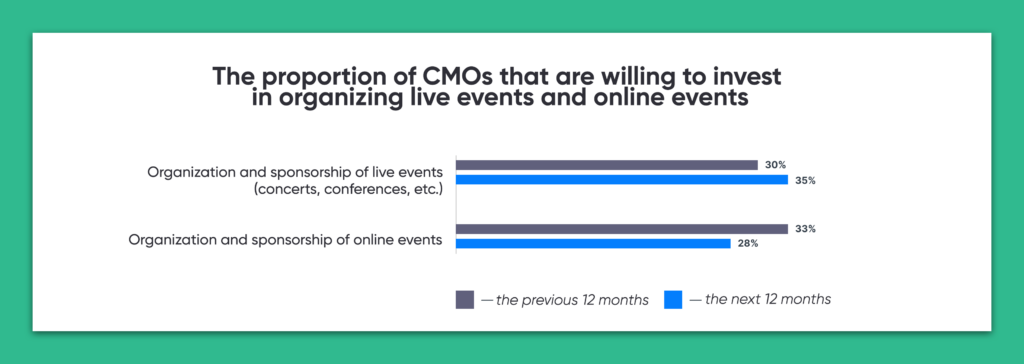
The number of professionals who are going to spend money on the same events in a virtual format has decreased by 5%. But interest in both directions remains high.
Influencer marketing – promotion through influencers
The Dentsu chart shows that the share of CMOs who plan to invest in influencers is gradually declining. If in the previous 12 months this was 36% of respondents, then for the next year we are talking about 31%. But it is too early to draw clear conclusions.
If we look at a report from another company, PQ Media, we see that global influencer marketing spending has shown a steady increase since 2017. In 2022, 21.5% more was invested in this area than in 2021 – only $29.14 billion. The same report predicts that by the end of 2023, another 17% more will be spent on influencer marketing than in 2022, for a total approaching $34 billion. It is too early to say that these numbers will begin to decline in 2024.
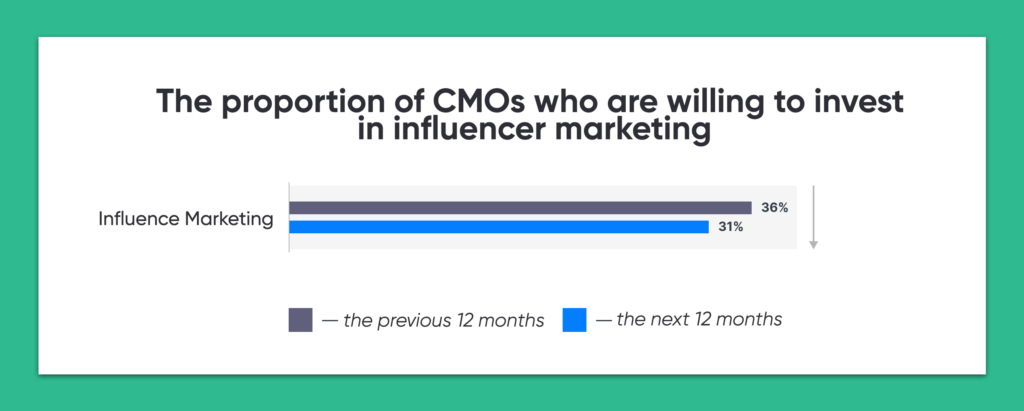
But one thing is for sure: influencer marketing is undergoing major changes. The HubSpot report , which analyzed data from 1,000 marketers around the world, reveals some interesting trends in this space.
For example:
- social networks are becoming increasingly important;
- marketers more often refuse to cooperate with celebrities in favor of micro-influencers – bloggers with an audience of up to 100 thousand;
- Short videos provide the highest ROI;
- audiences like funny content;
- redistributing the same content on different platforms is working increasingly poorly.
Another point that HubSpot pays attention to is an active audience. Marketers note that what is important now is not the numbers, but the response of live users. This is what all brands should focus on.
In-game advertising
The German company Statista, which specializes in consumer and market data, conducted a study of the global in-game advertising market. Its data shows that by the end of 2023, global revenue in this direction will be over $94 billion. But these impressive numbers will surprise you even more. Projections show that from 2023 to 2028, in-game advertising market revenue will grow by more than 10% per year. As a result, the market is projected to reach a record $157 billion by 2028.
With such indicators, it is not surprising that the in-game advertising market is attracting marketers. The Dentsu report shows that 18% of surveyed CMOs are willing to spend money on this area. This is not the highest figure when compared with the rest, but it is 3% more than in the previous 12 months.

Other directions
The Dentsu report touches on several other topics. Over the next 12 months, CMOs plan to invest in the following areas:
- Advertising on the resources of retailers and distributors. The methods are different: articles, contextual and targeted advertising, etc. Interest in this area on the part of CMOs increased by 1% – from 27 to 28%.
- Production and sponsorship of original content: TV shows, movies, podcasts, radio shows. 27% of marketing directors plan to invest in this area.
- Integration into live broadcast content. There are no changes in this direction. Still 26% of CMOs are going to invest in it.
According to Dentsu’s research, in 2024 we are preparing to attend events and watch in-game advertising. Moreover, large-scale advertising integrations in games are no longer news. Back in 2020, Animal Crossing introduced a virtual KFC island with a proprietary design and all the attributes of a fast food restaurant. It was a joint project between KFC and Nintendo. And something tells us that there will be more and more such interesting cases.
Bets on AI in the media space
Another topic that the Dentsu study touched on is the use of AI in the media space. It turned out that 49% of surveyed CMOs rely on artificial intelligence to attract customers. They confirmed that they plan to use AI to develop media strategy, creative and content. But the main task for him is still data analysis and reporting (53%).
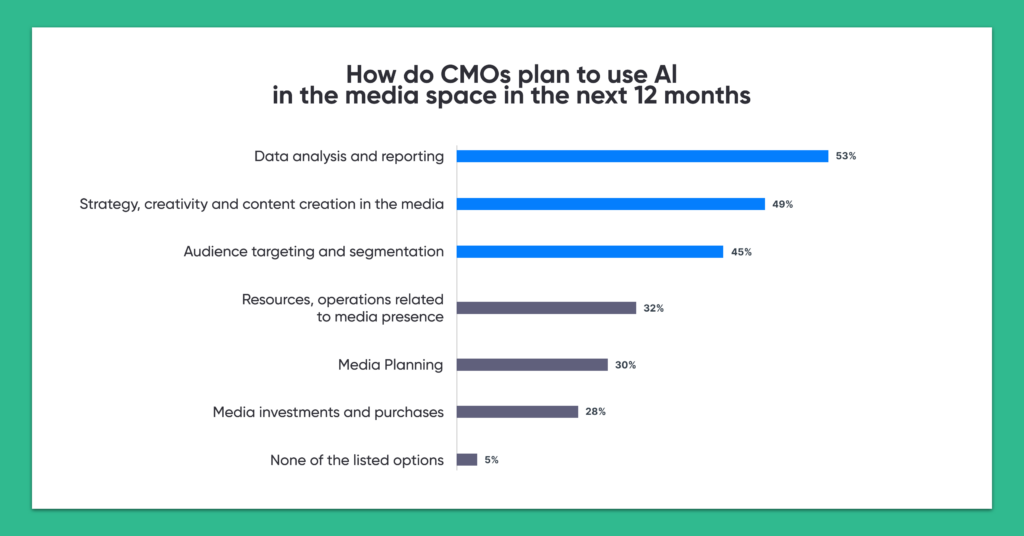
45% of CMOs will use artificial intelligence for audience targeting and segmentation, which is also quite a lot. About 5% of participants did not choose any of the options that were offered by Dentsu.
What challenges are CMOs facing now?
The world is changing very quickly, so marketers regularly face new challenges. The Dentsu team investigated this issue as well. She found additional issues that cause concern for CMOs:
- Integrating new technologies into work is time-consuming and expensive. To effectively use the capabilities of AI and AR, you need to invest a lot of effort, time, energy and money.
- It becomes more difficult to generate content. In the US, for example, this is due to the SAG-AFTRA strike . This is the first actors’ strike in 43 years, which began on July 14, 2023 and lasted until November 8. It has hit the US film and television industry hard, especially given the impact of the pandemic.
- Low control over brands in social networks and the creator economy. The Creator economy is an industry in which people themselves create a product (mainly content) and post it on various digital platforms. Since there are a lot of authors, and the laws are far from perfect, in such a situation it is very difficult to control the promotion of brands and their reputation.
- Condemnation of the media and accusations that it causes mental illness. The fact that social networks cause addiction and increase the risk of depression is increasingly being said – and this also affects marketing.
Even in the face of new challenges, marketers are quickly adapting to market changes. 38% of participants from the Dentsu study noted that they are looking at new platforms and other promotion channels. At the same time, 47% of CMOs agreed that it is necessary to monitor the situation and not make decisions that will entail drastic changes in work in a short time.
We conclude that today, marketers must be able to react with lightning speed and adapt to market changes. Fortunately, WGG Agency is always aware of all trending events in the world of marketing and is ready to provide you with advice from a team of professionals.





